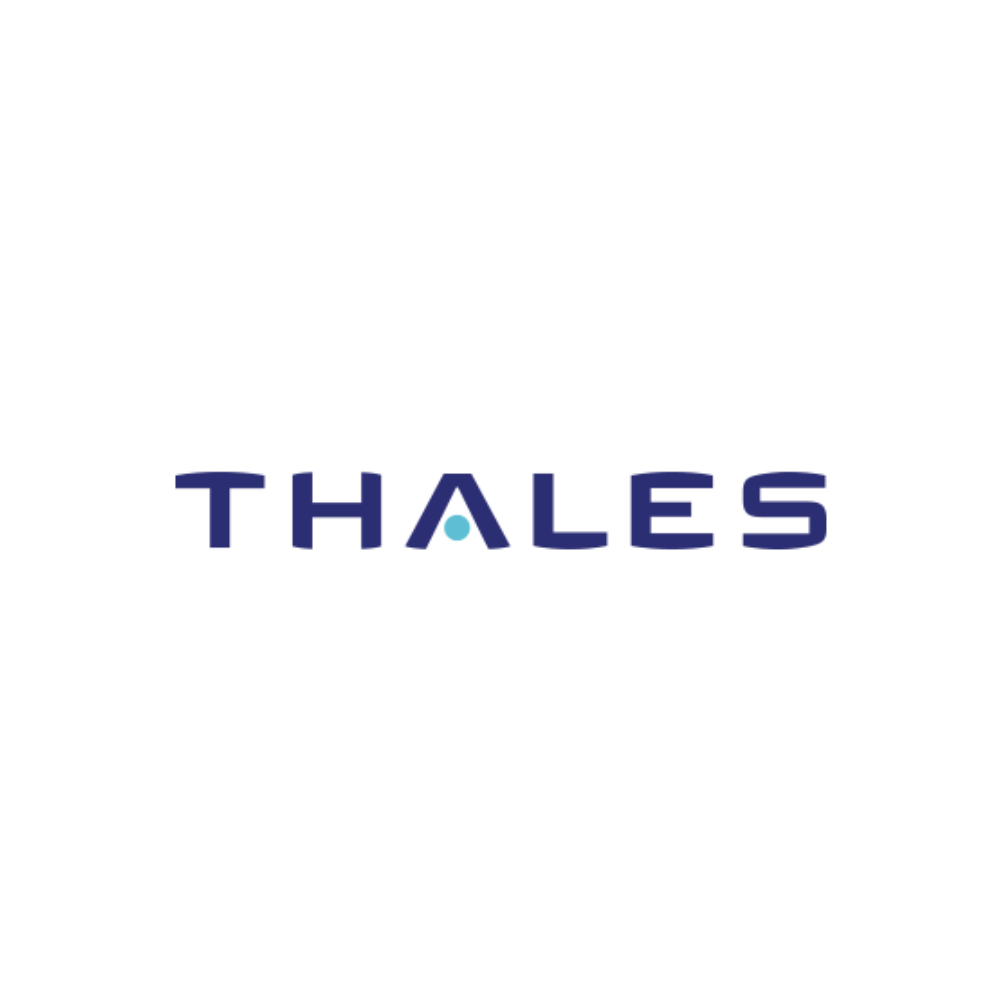Thales
TRANSFORM TECHNICAL LEADERS TO BUSINESS LEADERS.

Thales is a French multinational company that invests in digital and “deep tech” innovations – Big Data, Artificial Intelligence, Connectivity, Cybersecurity, and Quantum Technology for the Aerospace, Space, Defence, Transportation, and Security Sectors. Founded in 1968, the company has grown to a worldwide group of 80,000 employees in 68 countries.
In Australia, Thales is home to 3,800 employees and is a major regional employer. The development of people and leadership skills formed a pillar of the 2020-21 Thales Australia business strategy. An urgent need was identified within the strategy to improve the business acumen of managers across the business, who must master the drivers of the business to make better decisions and lead outcomes-focused conversations.
THEIR GOAL
TO DEVELOP NEW MINDSETS AND SKILLSETS ACROSS THE MANAGER POPULATION. MORE SPECIFICALLY, HELP THE GROUP SHIFT FROM BEING TECHNICAL EXPERTS TO LEADERS WHO MAKE INFORMED DECISIONS TO BALANCE CUSTOMER EXPECTATIONS WITH PROJECT, SCOPE, BUDGET, AND PROFITABILITY.
OVERVIEW
Many professionals identify strongly with the technical aspects of their jobs. Whether it’s doctors, architects, or engineers, these people are highly qualified to perform their roles in complex, sometimes life-or-death situations. These qualifications are hard-won and are typically accompanied by a strong desire to create the best solution for the problem they’ve been asked to solve. Often, technically brilliant people lack the education, exposure, or experience to understand the business of being in business. When this is combined with a passion for serving the customer, lengthy project delays and budget overruns ensue.
Thales is an engineering organisation at its heart, with a strong process orientation and experts deployed into many functional and business unit silos. Technical skills are top-class across the board. Thales Australia’s goal was to lift managers’ business acumen to complement their technical expertise and deliver better business outcomes.
After extensive interviews with a range of stakeholders, we identified five key behaviours that neatly summarised the value of better business acumen in this unique context:
- Understand the key financial consequences of a range of Thales-specific business drivers.
- Has a working knowledge of Thales’ strategy and financial metrics against those of competitors.
- Makes timely decisions based on “best available” information by understanding the decision implications for Thales results.
- Communicates Thales’ BU–related strategies and performance to others.
- Takes customer-focused action to drive Thales strategy and performance.
Working at the observable behaviour level is critical to enabling lasting change.
Based on this detailed understanding, we customised the world’s best-practice Business Acumen Programme – tailoring each discussion and activity to the Thales context, language, and value chain. We delivered nationally to a diverse group of managers using a virtual delivery method.
To strengthen the focus on application, we broke the group into smaller syndicate sub-groups that were each assigned a business project. These syndicate groups worked together over seven weeks to identify a compelling case for change and develop a business case for exploring and exploiting the specific opportunity or issue they were assigned. The groups were coached by one of our expert business acumen coaches to help them sharpen their thinking and articulate their business cases. The project wrapped up with a Shark Tank-style series of presentations and a virtual graduation hosted by Thales senior executives and board members. We used a 12-part Programme Scorecard to measure improvement and value.

APPROACH
Explore all aspects using FROM-TO analysis:
We use a robust Discovery Process with our clients to dive deep into the current situation (FROM) and identify the targeted future state (TO). This discovery process is critical to developing a program well-suited to the needs of a diverse group of professionals. This data is used to source and design the examples and scenarios used in the program. In addition, the “FROM-TO” analysis provides the criteria by which we measure the ROI achieved on the program investment.
Use a proven system:
“Business Acumen,” “Commercial Business Acumen,” and “Commercial Acumen”— these terms mean different things to nearly everyone. Move away from these opinion-based, and often internally sourced reference points. Instead, use proven experts who have a proven system. In this case, we used Acumen Learning’s Building Business Acumen program which has been used by 30 of the Fortune 50. By building on this incredibly secure foundation, we ensure quality and scalability across the organisation.
Put it to work:
Most leadership and capability development programs failed to achieve any return on investment. Sidestepping four common mistakes can help companies develop stronger and more capable leaders while saving time and money. We know that what’s covered in the classroom is often forgotten and never applied in the workplace. Therefore, it’s critical to build programs with structure and application that extend well beyond the time spent in any workshop setting.
The lasting change requires feedback:
Changing mindsets and behaviours is hard. We need other people to help us by noticing and giving us feedback on the myriad of small things that constitute new ways of thinking and acting. We enable this feedback via a technology platform that helps us notice micro-behaviours.
Jason Legge
THALES, Senior Engineer
RESULT
THE GROUP PROGRESSED TOWARDS BECOMING BETTER BUSINESS LEADERS WITHOUT COMPROMISING THEIR STANDARDS OF TECHNICAL EXCELLENCE. THEY STARTED TO ASK BETTER QUESTIONS OF THEMSELVES AND THEIR TEAMS.
These new mindsets and skillsets led to other noticeable, and measurable results:
- 6% improvement in demonstrated Business Acumen capability
- 9% shift to a performance and outcomes-focus.
- 7% lift in demonstrated ability to communicate Thales’ strategies to others to encourage ownership.
- 9% improvement in the working knowledge of Thales’ strategy and financial metrics against those of key competitor.
CONCLUSION
When highly technical firms invest in their professionals’ business acumen, they improve their bottom line without sacrificing customer outcomes or technical expertise. As people start to see themselves as ‘engineers who are in business’ they make better, more commercially oriented decisions. Using the common language of business and finance, technical experts become more confident and capable business people and are better equipped to break down internal silos. This results in a more nimble, more profitable organisation.

Written by
Stuart Findlay
Partner
- +61 438 457 764
- stuart@lighthousegroup.co